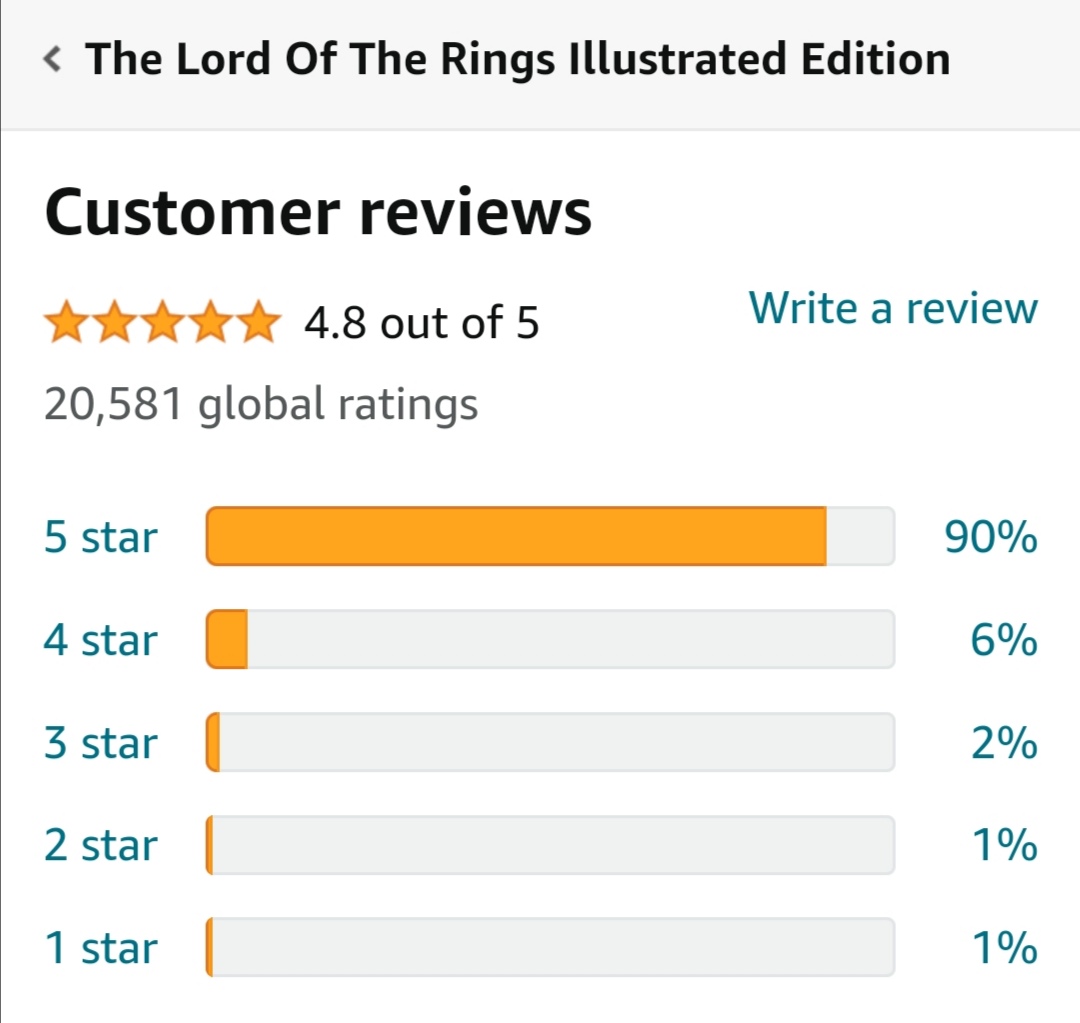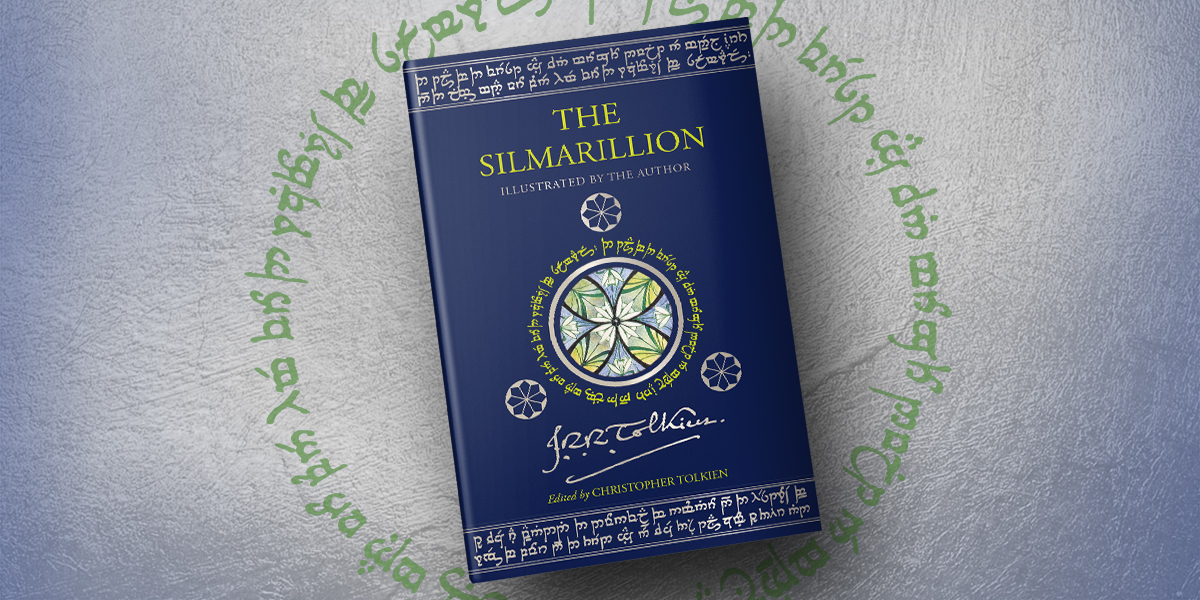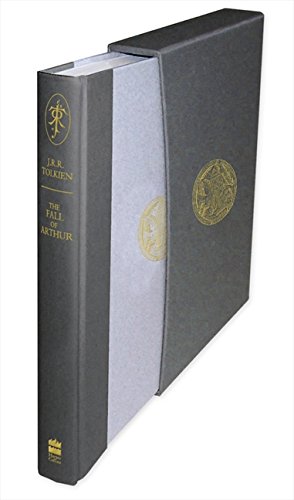I tend to think of HarperCollins, and any other mainstream publisher for that matter as now having to make every reader a 'collector' so they keep churning out new refreshed editions. With that comes a downside, that actual collectors are left looking at faddy editions that don't speak to their collecting desires. Look over on Reddit and you will find Tolkien 'collectors' galore, but they are better described as Tolkien 'accumulators'. But as the types that frequent here buy less because the books don't have the finesse and quality of past releases, the average reader will pay a premium price for a substandard product and HarperCollins will see that as a win. Rinse and repeat.
I think where resentment forms is when the editions are BOTH expensive and low quality. One or the other can have its place, but the recent trend towards both being the case has been especially disappointing. I wonder how much profit would need to be sacrificed to keep a tolerable level of quality on some of these expensive editions. Obviously, the red LoTR was an extreme example of this trend, but it was something HarperCollins had been building towards for a while. When it ended up being a mess, I don't think anyone was terribly surprised.

24 Mar, 2022
(edited)
2022-3-24 5:45:02 AM UTC
Edited by Trotter on 2022-3-24 5:59:00 AM UTC
Edited by Trotter on 2022-3-24 5:59:54 AM UTC
Edited by Trotter on 2022-3-24 6:00:25 AM UTC
Edited by Trotter on 2022-3-24 5:59:54 AM UTC
Edited by Trotter on 2022-3-24 6:00:25 AM UTC
2022-3-24 5:45:02 AM UTC
Khamûl wrote:
I'm still a bit disappointed nobody has gone to their shelves to report on sagging page-blocks though...
I don't like to look, as you say it is a terrible fate for books when this happens.
I was surprised by this new book, as I thought that HC would concentrate on paperbacks for the Amazon TV series as these are cheaper and more likely to sell to the viewers of the series, I can also ignore all the TV paperbacks quite happily.
I hope that the quality issues shown on last years LOTR do not resurface and that this has been resolved and I would love them to use better paper for the illustrations. The binding of this book could also be interesting, if it follows LOTR then it would have blue stain and lettering on the fore-edge.
Urulókë wrote:
Topics we seem to be intermingling:
- is repackaging existing titles a marketing ploy?
- are modern books sadly falling off in production quality?
- Specifically HarperCollins recently?
- are large page blocks sagging (yes), and how does that make us feel (bad, really bad)?
- will we (individually) be buying this particular edition of The Silmarillion?
1. Yes. What I'm particularly angry at is lazyness that comes with the idea that simply slapping 'Illustrated by the author' sticker is justification enough for yet another edition that brings absolutely nothing new or exciting to the market. 'It's business' is a cynical way to defend HC's lack of new ideas. They're in the business (d'uh) so a bit more effort to get my money might be required. It has not been decades or years even, since we've last seen a Sil. - it's been literally months. To answer nr. 5 - No. Not interested. And for the benefit of the forum and discussion, stop behaving like everyone who doesn't clap excitedly at everything that's got a Tolkien name on it is your enemy.
2 & 3 & 5 - Yes.
I have seen quite a lot debates about declining quality of hardback books in recent years - lower print quality, lower paper quality, cheaper binding techniques. So I don't think it has anything to do directly with HarperCollins or Tolkien Estate, the publisher uses what's available.
And what's available has sadly become lower quality.
Someone compared hardback book collecting with vinyl record collecting - a lot of LPs that are now sold are played very rarely, or not even played at all. Record companies are using marketing talk like "audiophile 180 g pressing", but most of them are really just CD audio transfered to vinyl, badly pressed, zero quality checking... Are there people dissatisfied with that? Minority, which can be dismissed. Most of the people stream their music, even when they have the album on vinyl - they buy the record just for the cover art and ownership of physical version of a thing they like in other medium.
Same is apparently happening with "deluxe", collectors, anniversary hardback books. Just look at the Amazon customer feedback for the Lord of the Rings author illustrated edition - 20.581 ratings, 90% of them giving it 5 stars. So, a wild success? Why would the publusher even consider spending more on higher quality print, paper and binding?
And people actually just browse through their collectors edition hardback, and put it proudly on a shelf. And when they want to re-read their favourite book, they'll not reach for the $60 - 140 fancy edition, but for old tattered paperback, or a Kindle edition. Must keep the nice expensive book pristine!
And what's available has sadly become lower quality.
Someone compared hardback book collecting with vinyl record collecting - a lot of LPs that are now sold are played very rarely, or not even played at all. Record companies are using marketing talk like "audiophile 180 g pressing", but most of them are really just CD audio transfered to vinyl, badly pressed, zero quality checking... Are there people dissatisfied with that? Minority, which can be dismissed. Most of the people stream their music, even when they have the album on vinyl - they buy the record just for the cover art and ownership of physical version of a thing they like in other medium.
Same is apparently happening with "deluxe", collectors, anniversary hardback books. Just look at the Amazon customer feedback for the Lord of the Rings author illustrated edition - 20.581 ratings, 90% of them giving it 5 stars. So, a wild success? Why would the publusher even consider spending more on higher quality print, paper and binding?
And people actually just browse through their collectors edition hardback, and put it proudly on a shelf. And when they want to re-read their favourite book, they'll not reach for the $60 - 140 fancy edition, but for old tattered paperback, or a Kindle edition. Must keep the nice expensive book pristine!

There's some good comments here.
One thing I tried to make clear (in my experience) is that modern big chunky hardbacks cannot even be kept "pristine" by leaving them on the shelf unread, while you get the eBook out. They are basically untenable as book structures. I'm already shocked to here people say the new LR is showing this. Is this both the leather deluxe & the standard?
I've read a lot about this since starting bookbinding. One thing I found quite amusing, when I encountered it, was that some bookbinders actually consider modern hardbacks as temporary bindings; which is incredible when one juxtaposes this with the online commentary on such books. Bindings, from a bookbinding perspective, are meant to be permanent structures in respect to human live i.e. they will outlive you, outlive your children, potentially survive unscathed for a 100 years. This is absolutely the aim of binding bi-foliate pages in a codex. The idea of books as heirlooms derives from this basic concept of books.
The spread & popularity of the adhesive binding (in all its forms) is not new. However, it's been argued, that this change to one of culture's essential icons (as books undoubtedly were/are) went essentially unnoticed. And this is for the reasons already cited: the average person (both reader, and now collector) has no appreciation of basic book construction. The publishing industry allowed this to happen, as it was vastly less expensive to make these bindings. They had no interest in educating the public because they were the ones passing off inferior products to the unsuspecting public.
These changes have led to the loss of the book's longevity & with this the social denigration of the concept of the book itself. Everything I see online today speaks to this truth. Books, today, are ephemeral & misunderstood items. They are viewed (as they are in some instances) as items for the storage and retrieval of information. Which is of course totally legitimate & is why we have seen the challenge to physical books of digital.
I suppose what I'm trying to say is, it's a real pity Tolkien (who created something so unique) isn't being honoured with his work being presented (& marketed) in something a little more permanent. I have always had a natural inclination to push back against the corporate world when I feel it's not serving any real purpose. And increasingly I'm starting to view Tolkien publishing in the context. And, further, if it's not already obvious, a bit irritated that there is not a far more vocal online recognition (& commentary) that this is the world book collectors now find themselves in.
I never used the term "money-grab" but I think it's fair to say my view is that HarperCollins have totally lost their marketing compass in respect to Tolkien publishing. The next 10-20 years feel like they're just going to be a slow grind towards Tolkien copyright d-day with very little (hopefully there will be occasional exceptions) of real value being published, and certainly nothing (in book terms) of permanent value produced.
One thing I tried to make clear (in my experience) is that modern big chunky hardbacks cannot even be kept "pristine" by leaving them on the shelf unread, while you get the eBook out. They are basically untenable as book structures. I'm already shocked to here people say the new LR is showing this. Is this both the leather deluxe & the standard?
I've read a lot about this since starting bookbinding. One thing I found quite amusing, when I encountered it, was that some bookbinders actually consider modern hardbacks as temporary bindings; which is incredible when one juxtaposes this with the online commentary on such books. Bindings, from a bookbinding perspective, are meant to be permanent structures in respect to human live i.e. they will outlive you, outlive your children, potentially survive unscathed for a 100 years. This is absolutely the aim of binding bi-foliate pages in a codex. The idea of books as heirlooms derives from this basic concept of books.
The spread & popularity of the adhesive binding (in all its forms) is not new. However, it's been argued, that this change to one of culture's essential icons (as books undoubtedly were/are) went essentially unnoticed. And this is for the reasons already cited: the average person (both reader, and now collector) has no appreciation of basic book construction. The publishing industry allowed this to happen, as it was vastly less expensive to make these bindings. They had no interest in educating the public because they were the ones passing off inferior products to the unsuspecting public.
These changes have led to the loss of the book's longevity & with this the social denigration of the concept of the book itself. Everything I see online today speaks to this truth. Books, today, are ephemeral & misunderstood items. They are viewed (as they are in some instances) as items for the storage and retrieval of information. Which is of course totally legitimate & is why we have seen the challenge to physical books of digital.
I suppose what I'm trying to say is, it's a real pity Tolkien (who created something so unique) isn't being honoured with his work being presented (& marketed) in something a little more permanent. I have always had a natural inclination to push back against the corporate world when I feel it's not serving any real purpose. And increasingly I'm starting to view Tolkien publishing in the context. And, further, if it's not already obvious, a bit irritated that there is not a far more vocal online recognition (& commentary) that this is the world book collectors now find themselves in.
I never used the term "money-grab" but I think it's fair to say my view is that HarperCollins have totally lost their marketing compass in respect to Tolkien publishing. The next 10-20 years feel like they're just going to be a slow grind towards Tolkien copyright d-day with very little (hopefully there will be occasional exceptions) of real value being published, and certainly nothing (in book terms) of permanent value produced.
I know I criticise the styling on the Easton Press editions, but in terms of being durable, well made books, the ones where they they don't just buy in the page blocks kill anything made by HarperCollins. They really do feel solid.
"Less for more" is a factor of today's uncertain times. Especially since covid hit, people are rushing to put their money in "safe" places like collectibles. Literally every collectible market I'm involved in (trading cards, books, astronomy gear, cameras, musical instruments, games, dolls [via wife]) is seeing demand skyrocket, taking prices along for the ride. It's not just inflation, it's buyer behavior, and big corporations are taking note.
That HarperCollins is pushing a poorly conceptualized (opinion) and poorly executed (less an opinion) new series of collectible books is par for the course. I can't blame them, and I'm honestly sure there will be people who enjoy these "author-illustrated" slabs. It certainly LOOKS like something that should be scarce and valuable in a few years. Better buy it just in case; FOMO isn't just a state of mind but a real financial opportunity missed the way collectible prices have been spiking. (No, I don't think this is sustainable, but that is the current fever dream).
I like the term "Tolkien accumulators", and would personally urge anyone on this track to reflect that HarperCollins is decidedly NOT catering to this segment. If you're into that, absolutely more power to you (and please post pics of your shelf!) But otherwise, if your goal is to catch 'em all, be prepared to shell out as HC continues to hit the gas on the pump and dump strategy that pretty much every other profitable company adheres to these days.
Again, I'm not casting judgement on HC, it's a sound business decision in the short term especially with Papa Bezos' Tolkien-flavored media kaiju readying to emerge from the waves. But I've been compelled to drown any notion of completionism in a bathtub in light of this increasingly rapid stream of releases.
"When everything is special, nothing is special"
Honestly, it's freeing in a way. Aelfwine is right, there's nothing forcing anyone to buy in–and now HC is making sure that is more true than ever.
That HarperCollins is pushing a poorly conceptualized (opinion) and poorly executed (less an opinion) new series of collectible books is par for the course. I can't blame them, and I'm honestly sure there will be people who enjoy these "author-illustrated" slabs. It certainly LOOKS like something that should be scarce and valuable in a few years. Better buy it just in case; FOMO isn't just a state of mind but a real financial opportunity missed the way collectible prices have been spiking. (No, I don't think this is sustainable, but that is the current fever dream).
I like the term "Tolkien accumulators", and would personally urge anyone on this track to reflect that HarperCollins is decidedly NOT catering to this segment. If you're into that, absolutely more power to you (and please post pics of your shelf!) But otherwise, if your goal is to catch 'em all, be prepared to shell out as HC continues to hit the gas on the pump and dump strategy that pretty much every other profitable company adheres to these days.
Again, I'm not casting judgement on HC, it's a sound business decision in the short term especially with Papa Bezos' Tolkien-flavored media kaiju readying to emerge from the waves. But I've been compelled to drown any notion of completionism in a bathtub in light of this increasingly rapid stream of releases.
"When everything is special, nothing is special"
Honestly, it's freeing in a way. Aelfwine is right, there's nothing forcing anyone to buy in–and now HC is making sure that is more true than ever.

















 0
0 83
83